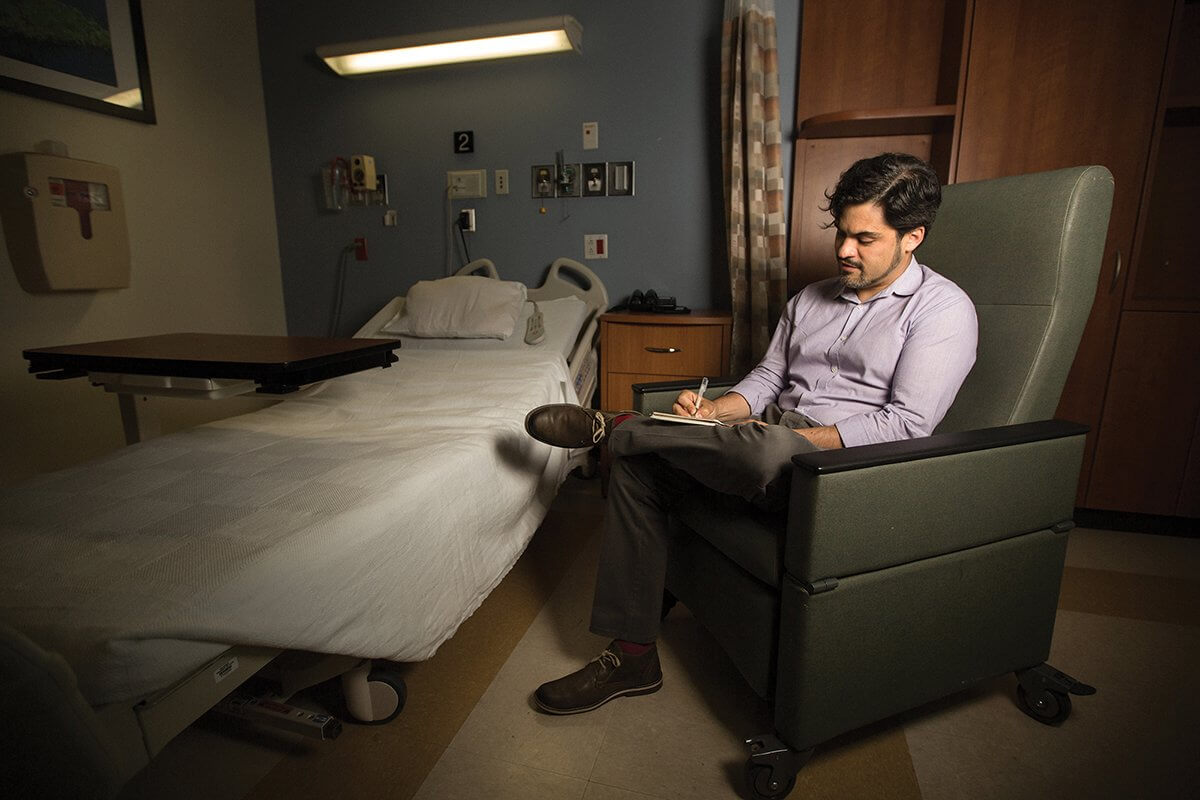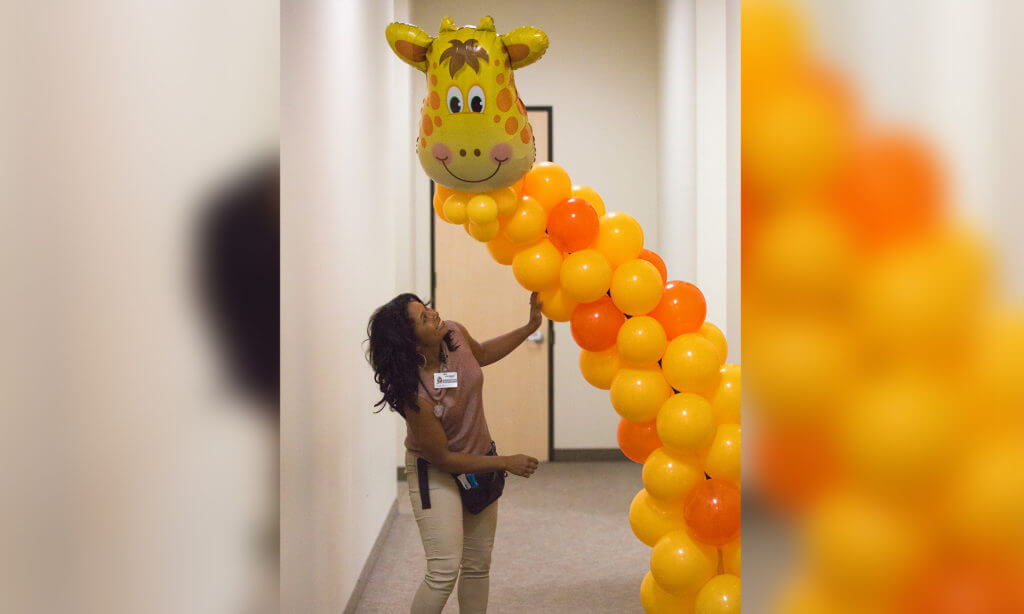Ricardo Nuila, M.D., a hospitalist whose patients inspire his narrative nonfiction

NAME: Ricardo Nuila, M.D.
OCCUPATION: Internal medicine physician and hospitalist at Baylor College of Medicine and Ben Taub Hospital
INTEREST: Narrative medicine
When asked whether he’d rather be known as a famous doctor or a famous writer, Ricardo Nuila, M.D., doesn’t hesitate.
“Easily, writer,” the Houston native said with unwavering conviction. “Most people think of great doctors as the ones coming up with great diagnoses. I just don’t see it like that. That doesn’t motivate me.”
Instead, Nuila is driven to share the stories of his patients and their struggles. As a physician at Ben Taub, Houston’s largest safety net hospital, Nuila treats individuals from some of the most vulnerable, indigent and underserved populations in the city, and has written extensively about medical ethics and health disparities within the health care system. His essays have appeared in Texas Monthly, Virginia Quarterly Review, The New York Times Sunday Review, The New England Journal of Medicine and at theatlantic.com and newyorker.com.
Nuila co-directs the Narrative Medicine program at Baylor, serves as a faculty member in Baylor’s Center for Medical Ethics and Health Policy, and is a professor in the Medicine and Society program at the University of Houston Honors College. His upcoming book, The Poor Unfortunates, outlines some of his experiences at Ben Taub and argues for a national safety net system. The book is scheduled for release in 2020.
After graduating from Georgetown University in 2000 with his bachelor’s degree in English, Nuila set his sights on a medical career as an orthopedic surgeon in hopes of becoming the next Houston Rockets doctor. He was accepted to Baylor College of Medicine for medical training, but he couldn’t deny his love for the written word. He found himself torn between his two loves. He could either become a doctor like his father, uncles and grandfather, or pursue a career in writing. In his heart of hearts, he knew he wanted to write.
“I told one of my script writing professors that I was thinking about giving away my spot at Baylor to become a writer. He said, ‘You’d be nuts to do that,’” Nuila recalled. “He told me, ‘You can go to MFA school and learn technique, but where are you going to get your stories?’”
Nuila came to the realization that his two loves were not, in fact, mutually exclusive.
“Everything I do in writing helps out with me being a doctor. Everything I do being a doctor helps out with my writing,” Nuila said.
As a physician, his true calling turned out to be internal medicine, a field in which he could channel his inner Sherlock Holmes.
“I like the process of figuring things out and thinking about the medical systems,” Nuila said. “Internal medicine is detective work. It’s this idea that you can put these different facts and exam findings together to figure out what’s going on, and then parlay that for the patient into a treatment plan.”
Another part of his job as a doctor and a writer, he said, is to help people understand medicine without all the medical jargon that can inhibit communication between doctors and patients. It’s an important undertaking, he said, especially when lives are on the line. Nuila follows the same line of inquiry at a patient’s bedside as he does when developing a character for a story. After all, his patients are his muses.
“I’m looking for things beneath the surface,” he said. “It’s not just what people tell you; it’s ‘Why are they telling me this?’ In literature and writing, you’re always trying to delve deeper into that.”




